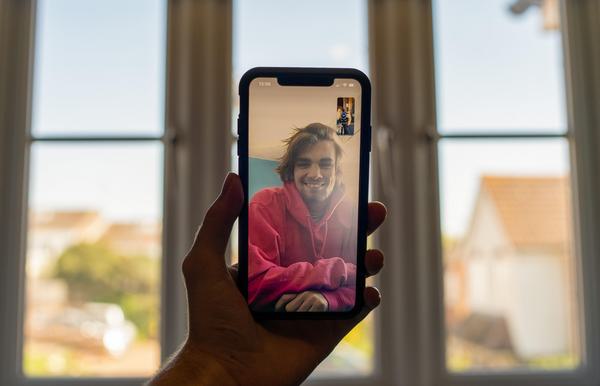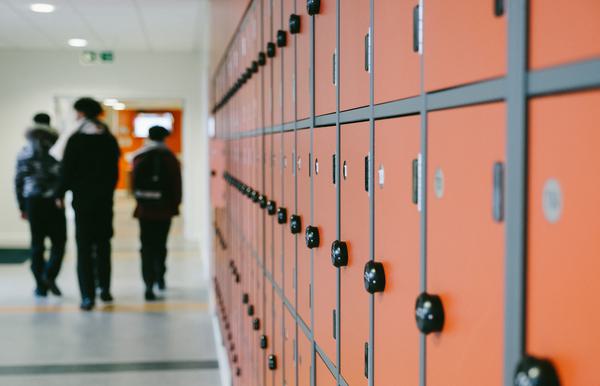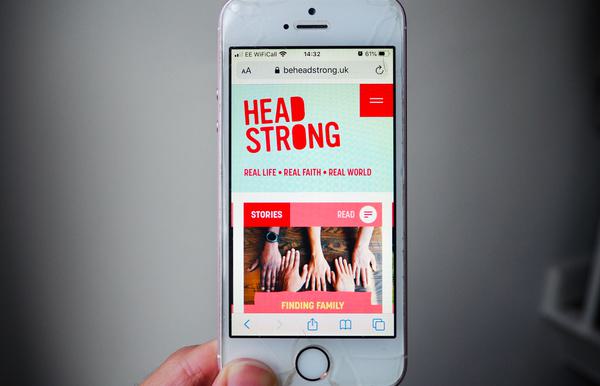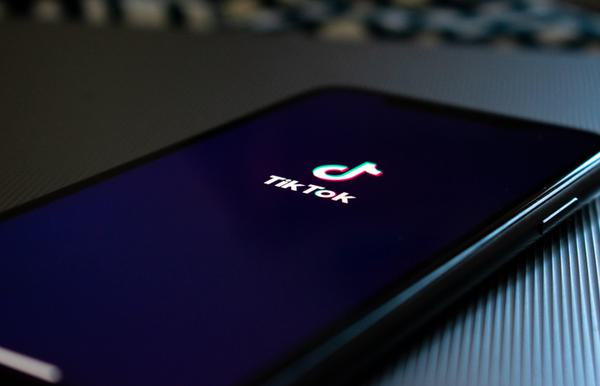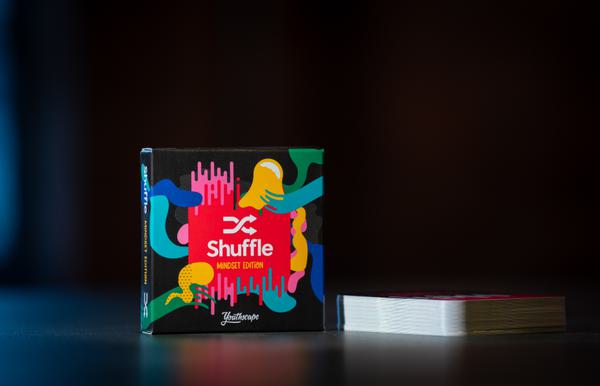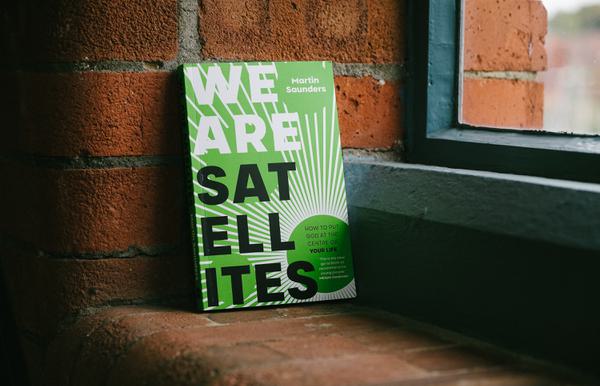A BBC Panorama documentary looks at the disproportionate damage Covid-19 is doing to young people. How can youth workers respond, and help the next generation tell their own, hopeful stories?
‘The thief, as will become apparent, was a special type of thief. This thief was an artist of theft. Other thieves merely stole everything that was not nailed down, but this thief stole the nails as well.’
― Terry Pratchett, Sourcery
The other day I realised that my son’s hand-me-down pink scooter had been nicked. I’m not surprised; we live on a busy main road and are rubbish at locking stuff up, or even leaving it anywhere other than on the pavement in front of the house. But still it’s not nice to think that something of yours has been taken by someone else. In broad daylight.
If you’ve ever had anything of yours taken you may have felt that initial shock or anger. But then the reality of living without it kicks in. You’re probably not getting it back. You’ll probably never really know who took it. You won’t get compensation or an apology. You’ll just have the absence where there once was something.
Even if that something was as elusive as a road map to a bright future.
Last night I watched the Panorama programme 'Has Covid stolen my future?'. It features reporter Kash Jones as he investigates the long-term consequences of the pandemic on his generation, dubbed ‘Generation Covid.’ Revealing brand new research findings, the programme highlights the impact of school closures on young people and the growing evidence that young people from poorer backgrounds have fallen behind their more privileged peers. The numbers are stark;
- a quarter of pupils - some 2.5 million children - had no schooling or tutoring during lockdown, the survey by the London School of Economics (LSE) suggests.
- nearly three quarters of private school pupils had full days of teaching (74%) - almost twice the proportion of state school pupils (38%).
It’s compelling viewing as Kash meets young people learning how to live in the wake of Covid. None of them have families or communities with wealth or influence they can fall back on, or who can buffer them from the harsh realities. They’re honest about the emotional and financial struggle. "This is it," one student explains, "This is Uni. This is everything that I’d hoped for since year 7 and I’m sat by myself. As soon as you close your door to your flat it’s so lonely and you spiral a little bit. It does lead to dark places." In addition to notes of despair though there’s also something of an echo of war-time stoicism in their voices, "We just have to get on with it. There’s no point in dwelling on it. You just get used to it." No wonder many young people feel that Covid is "still going to be plaguing our generation for years to come."
Resolve or resignation?
I’m not sure what I imagined from a documentary about this ongoing and unfolding issue, but it wasn’t this. Even though I’m a youth worker who (like many of you reading this) is seeking to walk the rough road of Covid with a group of young people and students, I was bowled over by the power of hearing young people own their narrative. It’s a reminder how little we’ve heard their voices in the national dialogue. This is their unfolding story, and they tell it with calm resolve, honesty and eloquence.
But a resolve bordering on resignation that I found deeply unsettling. This is the voice of the powerless who don’t believe their stories carry any weight. “Why get angry about something you know won’t make any difference?” one young person in Preston told me. “We already know our futures are threatened by climate change, then Brexit happened without our vote but we’re the one most affected by it. Then Covid happens and we have to deal with a society on pause. But then people demonise us for wanting life to carry on.”
There’s a very real sense from many young people that what’s happening with Covid is just another example of how they’re at the bottom of everyone’s priority list. Unsurprisingly for the most globally connected generation, they are the first to spot that young people are not all in the same ‘Covid-stole-my-future’ boat. Some are in bigger boats with lots of jet skis and life rafts for support. And not only that, but I find they’re often the first to acknowledge that bad stuff happens all the time to all sorts of people all throughout history all round the world so why not them and why not now (so said a young rough sleeper I caught up with today). No wonder they have a greater affinity to the idea that life is random. That hard work doesn’t lead to an easy life. That the future is unpredictable and structures and rules that don’t work for the world that now is, have to go.
"I’m angry that young people, especially those from deprived backgrounds, have had their education, future earnings and job prospects hardest hit by the pandemic and subsequent restrictions. I’m deeply concerned that schools are reporting greater incidents of self-harm, anxiety, depression, eating disorders and suicidal thoughts among young people. The fact that young people in deprived areas attending schools without the resources to support their education during lockdown are at risk of ‘permanent educational scarring’ makes my blood boil."

Where's the anger?
As I watched the documentary, I did wonder why there was less anger expressed on the programme. At one point I shouted at the screen, “When are these young people going to get angry? I’m angry at how they’re being affected!”
Of course I’m angry – I’m a youth worker who rages about these sorts of things! I’m angry that young people, especially those from deprived backgrounds, have had their education, future earnings and job prospects hardest hit by the pandemic and subsequent restrictions. I’m deeply concerned that schools are reporting greater incidents of self-harm, anxiety, depression, eating disorders and suicidal thoughts among young people. The fact that young people in deprived areas attending schools without the resources to support their education during lockdown are at risk of ‘permanent educational scarring’ makes my blood boil.
I wonder if and when the younger generation will start demanding some generational justice about all of this.
That’s yet to be seen, and this isn’t about me or my predictions for the future.
But we do have an important role to play because there is some big picture stuff happening that we must pay attention to. My note of caution for us who work with young people is to not lose sight of the individual story in the midst of an emerging national crisis. As this programme shows, hearing the stories of young people does really matter. We need to find the balance between advocating for the needs of a whole generation whilst at the same time being alert to the key issues facing the young people in our communities, issue that may not be directly related to Covid. Two different mentoring chats with young people today reinforced that idea. One wanted to talk about porn. The other about what name she’d give a dog, if her mum agreed to her getting one!
Painting pictures of how ‘Covid stole my future’ work well for a documentary, but they don’t make for a compelling vision for a young person’s life, and they mustn’t obscure the unchanging truth that the future is always hard to predict! Without denying the hardships faced by many of the extraordinary young people we’re called to serve, let’s be those who speak up and out for their creativity, resilience, potential, innovative spirit, generosity, humour and resolve. Do I really think that this generation’s future has already been lost? Do I believe that the future is a done deal that they are powerless to influence or shape?
In his stunning letter to the class of 2020, Rich Wilson, the Director of Fusion Student Movement, encourages the students to mourn their loss of moments, opportunities even as they choose how to walk this unknown path. “Goodbyes haven’t been good,” he writes, “The road may not be the direct route you are hoping for, but direct routes are rarely fulfilling or transformative. God thinks too highly of you to rush the divine work he is doing in your life.”
Maybe that truth needs to permeate our imaginations too.
What can we do? 6 ideas:
1. Give space for young people’s voices and stories.
2. Find ways to celebrate the young people in your church / setting.
3. Ask questions about what the young people in your community are facing, and find ways to respond well to them.
4. Speak well of young people.
5. Model and amplify young people’s power mentality as opposed to the victim mentality. (Power mentality says that I may not like the option I have, but I have the power to make choices based on the options I have.)
6. Where appropriate, find ways to open up a wider narrative to help young people locate their experiences in a wider global conversation of how Covid is affecting young people. ‘Worldwide Coronavirus threatens children already weakened by war, disease, hunger and poverty, whose very survival depends on health care, life-saving food, clean water and medical supplies. New research shows that 1.2 million children could die over the next six months due to the reduction of services – that’s a staggering 6000 children a day, or a child every 15 seconds.’ (Unicef)





